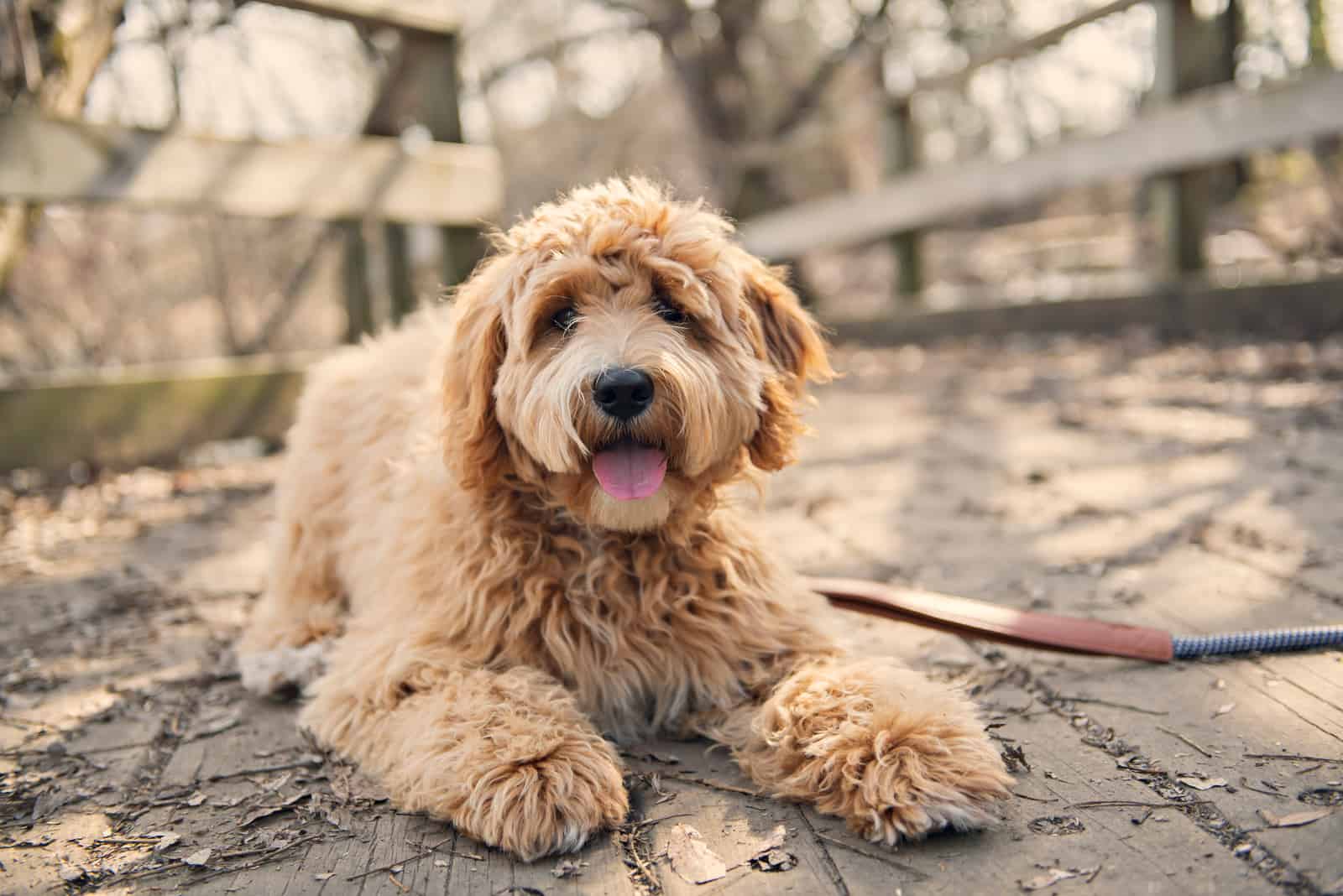No dog breed is genuinely bad, but some of them are simply more difficult to own than others. Before discussing why Goldendoodles are the worst canines, it is crucial to note that I don’t really think that, it’s just that they can be tough to handle sometimes.
They’re not bad dogs, they’re just not for everybody, let’s put it that way.
Now that the disclaimer has been made, we can go on to the subject and discuss why Goldendoodles are the worst dogs.
This post will outline nine potential difficulties that frequently arise when having one of these dogs. We will also try to provide some helpful tips to assist you in dealing with them if you already have one or if you’re considering getting one.
Reasons For Why Goldendoodles Are The Worst

A Goldendoodle is a crossbreed dog that is a mix of a Golden Retriever and a Poodle. They are known for being friendly, intelligent, and having low-shedding coats.
Their laid-back demeanor makes them great family dogs, which is why they are one of the most popular mixed breeds among dog lovers, along with Labradoodles and Bernedoodles.
They come in a variety of sizes, including standard, medium, and mini Goldendoodle, and are often used as therapy dogs or family pets.
These dogs have plenty of good sides, but as you may have guessed, this article will focus on the negatives, in an attempt to prepare potential new doodle owners for all the challenges that they might be facing.
Below are nine different reasons why Goldendoodles are the worst.
1. High-Energy Dogs
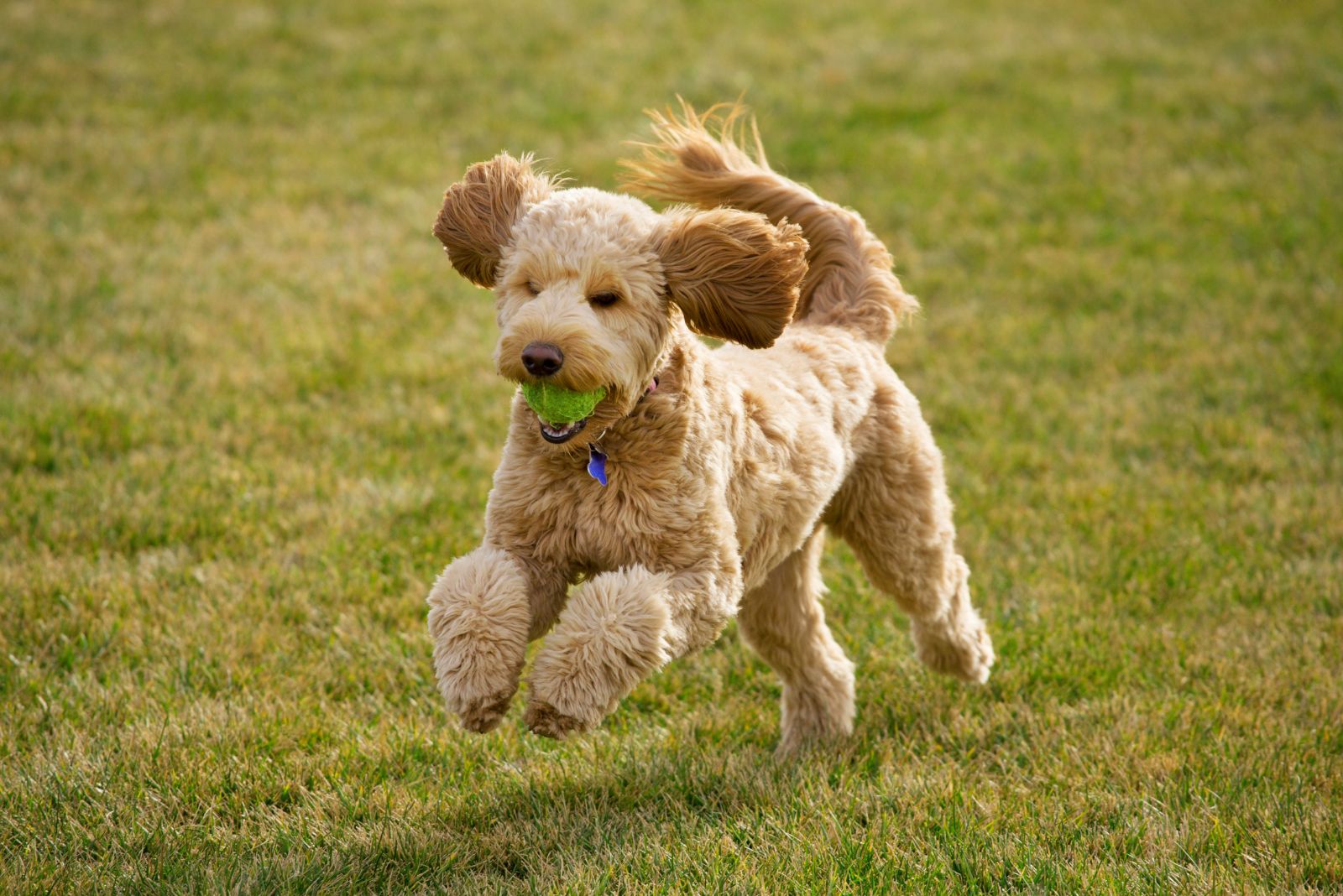
Goldendoodles are typically highly energetic dogs that require regular exercise and mental stimulation.
They are a hybrid breed that inherits the high energy level of their Golden Retriever parent and the intelligence and trainability of their Poodle parent.
Even when they are only a couple of months old, Goldendoodle puppies like running around a lot.
They typically enjoy activities such as running, playing fetch, and going for walks or runs with their owners. They may also enjoy agility training and other interactive activities, but also can be happy with a good walk or a bit of backyard playtime.
2. High Maintenance
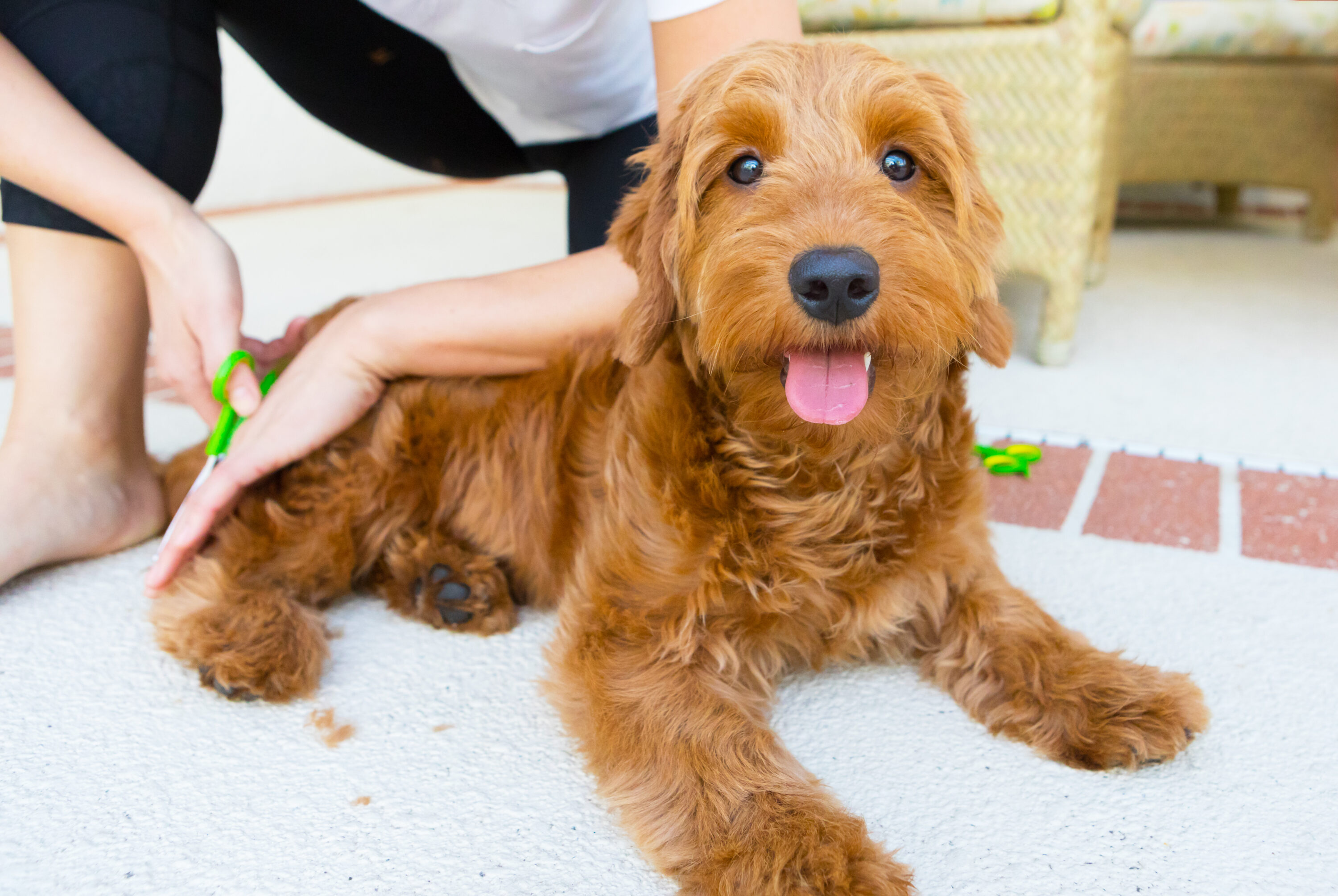
Goldendoodles can have moderate to high maintenance depending on their coat type. Their coat can come in a variety of textures, from wavy to curly, and can vary in thickness and shedding.
Some Goldendoodles have coats that are more similar to a Golden Retriever‘s, which shed more and require less grooming, while others have coats that are more similar to a Poodle‘s, which are low-shedding and require more grooming to maintain their curly texture.
By the way, if you would prefer a low-maintenance dog, check out our list of low-maintenance breeds.
Regular grooming is essential to maintain the coat’s appearance, and it also helps to keep the dog’s coat healthy and free of matting. You can either groom them yourself or go to a professional groomer.
Bear in mind that professional grooming can cost a lot of money, especially for doodle dogs. Speaking of a lot of money…
3. Expensive

Goldendoodles can be relatively expensive compared to other breeds, although it isn’t among the most expensive breeds in the world. The cost of a Goldendoodle can vary depending on the breeder, location, coat type, and size of the dog.
A Goldendoodle from a reputable breeder may cost anywhere from $1,500 to $4,000 or even more. in some cases. Some breeders may charge more for certain coat types or colors, or for dogs that are considered to be show quality.
Adopting from a rescue kennel or shelter can be cheaper but you may have less information about the dog’s lineage and history.
Additionally, owning a dog comes with other expenses like food, veterinary care, training, and grooming.
It’s important to consider all the costs associated with owning a Goldendoodle before making a decision to buy one, so you can be sure you can afford the long-term costs of caring for a pet.
4. Need A Lot Of Socialization

Goldendoodles, like most dogs, are social animals and typically enjoy spending time with their owners and other people and animals.
They are known for being friendly and outgoing, which makes them good choices for families with children and other pets. However, if you don’t have a lot of energy or time to keep up with them, they could start feeling left out or restless.
Providing your Goldendoodle with regular social interaction can help prevent bad behavior or separation anxiety and can also help keep them mentally and physically stimulated.
It’s important to keep in mind that Goldendoodles are highly social animals that crave human companionship, so they need a lot of attention and interaction. Put simply, they can get clingy.
In summary, Goldendoodles do require a lot of social interaction, and they make great companion dogs for families, couples, or individuals who are able to spend a lot of time with their pets.
5. They Can Get Loud
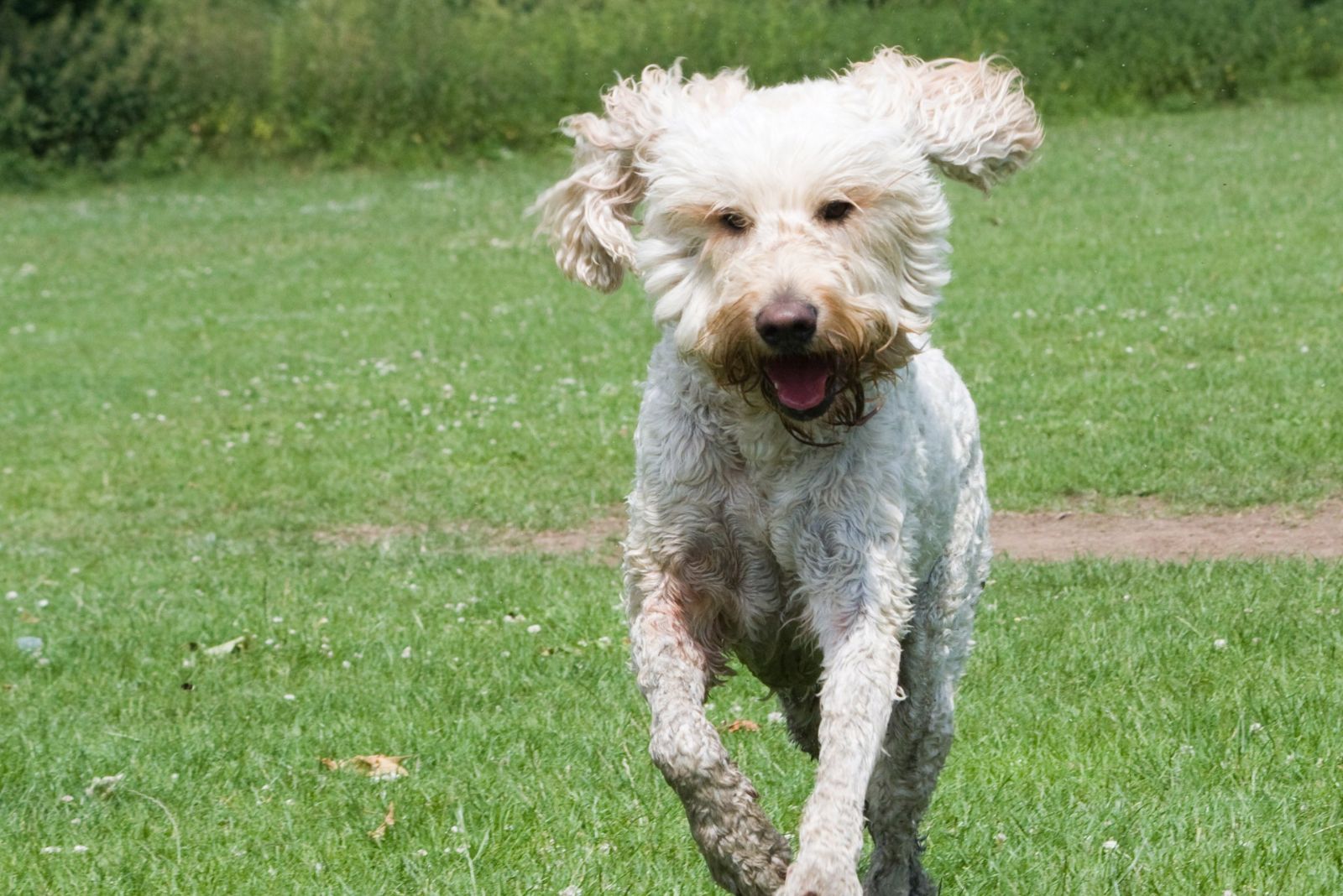
Some Goldendoodles may be more vocal than others, and this can depend on the individual dog’s personality.
Golden Retrievers are known for being relatively quiet dogs, but Poodles can be more vocal. So if your Doodle is more like its Poodle ancestor, you could be in for a noisy experience.
Training and socialization can help reduce barking, whining, or howling in Goldendoodles, but it’s still important to keep in mind that some Goldendoodles may be more vocal than others.
It’s also important to note that certain situations can make a dog more vocal such as boredom, loneliness, fear, or if they are in pain.
If you notice your Goldendoodle is making excessive noise it’s important to investigate the reason behind it and address the underlying cause.
6. Separation Anxiety

Goldendoodles, like many dogs, can suffer from separation anxiety if they are left alone for long periods of time.
Separation anxiety is a condition where a dog becomes anxious or upset when they are separated from its owner. If your dog exhibits destructive behavior, for example, if it howls for no reason, or chews on furniture, it might be a sign of separation anxiety.
And since Goldendoodles are known for being highly social and for bonding closely with their owners, they can be particularly susceptible to separation anxiety.
7. Not Great Watchdogs
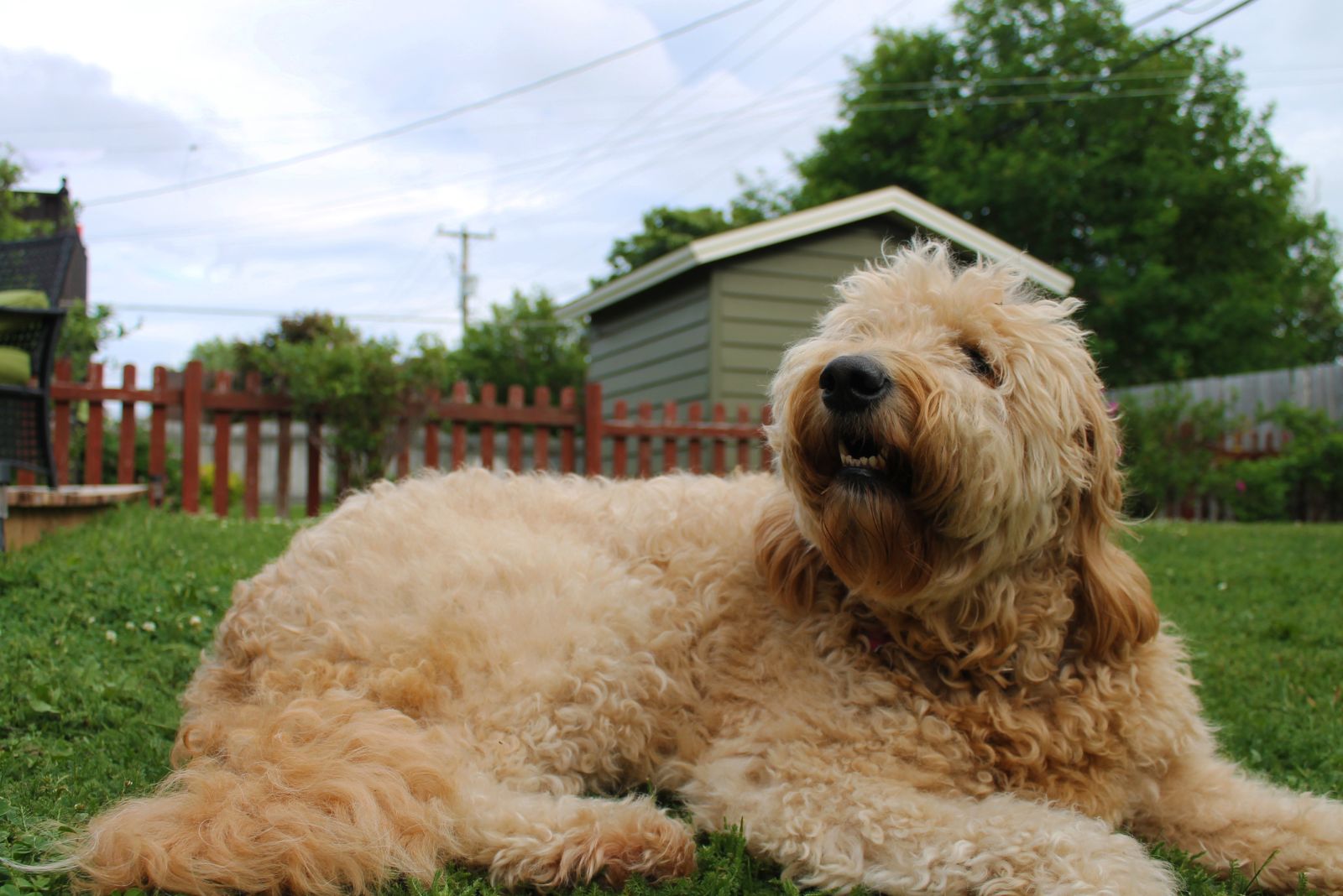
Goldendoodles, like Golden Retrievers, are known for being friendly and sociable dogs, which may make them less suitable as watchdogs.
They tend to be more inclined to welcome strangers with wagging tails and friendly behavior, rather than barking or showing aggression to alert their owners of potential intruders.
If you are looking for a dog to guard your house, you’re better off adopting a different breed, like a German Shepherd, for example.
8. Dishonest Breeders

Standard Goldendoodles are not purebred dogs, instead, they are artificially bred by crossing Standard Poodles with Golden Retrievers.
Sadly, a lot of people are breeding Goldendoodles solely for the purpose of making a quick profit because of their popularity, sometimes even scamming people.
These breeders may not prioritize the health and well-being of their dogs and may prioritize profit over the welfare of the animals.
Such breeders may inbreed their dogs, fail to provide proper veterinary care, or sell puppies that are too young to be separated from their mothers.
To avoid dealing with dishonest breeders, it’s important to do your research and find a reputable breeder. Reputable breeders will be happy to answer any questions you may have and will be able to provide you with information about the puppy’s parents and their health history.
Additionally, it’s important to visit the breeder‘s facility in person and observe the conditions in which the puppies and their parents are kept. A reputable breeder will have clean and well-maintained facilities, and the dogs will appear healthy and well-cared for.
9. Potential Health Issues

While they are generally considered to be a healthy breed, Goldendoodles can be at risk of certain health conditions that are common in both Golden Retrievers and Poodles (listed below).
It’s important to note that not all Goldendoodles will develop these conditions, and many will live long and healthy lives. Additionally, by purchasing a puppy from a reputable breeder who health tests the parents, you may reduce the risk of some of these issues.
Regular vet visits, a healthy diet, and regular exercise can help keep Goldendoodles healthy and prevent some of these issues.
Allergies
Even though Goldendoodles are considered to be hypoallergenic and non-shedding dogs, like a lot of Poodle mixes, that doesn’t mean that they can’t suffer from allergies themselves.
Being hypoallergenic means that they have less dander in their fur and therefore are less likely to cause allergic reactions in humans. However, Goldendoodle dogs can be allergic to all sorts of stuff, like certain foods, for example.
Elbow And Hip Dysplasia
This is a genetic condition that occurs when the hip or elbow joint doesn’t develop correctly. This can cause lameness and arthritis, and can lead to significant pain and mobility issues.
It is caused by a combination of genetic and environmental factors, so it is important to have the parents’ hips and elbows tested before breeding.
Progressive Retinal Atrophy (PRA)
This is a genetic eye condition that can lead to blindness. Progressive renal atrophy is caused by a degeneration of the retina, the part of the eye that senses light.
PRA can be diagnosed through an OFA examination, which is a comprehensive eye exam that checks for inherited eye diseases.
Addison’s Disease
This is a hormonal disorder that affects the adrenal glands. It occurs when the glands do not produce enough hormones, which can lead to symptoms such as vomiting, diarrhea, and loss of appetite.
Addison’s disease can be treated with hormone replacement therapy.
Epilepsy
This is a neurological disorder that can cause seizures. Seizures can be caused by various factors such as genetics, injury, infection, or exposure to toxins.
Epilepsy can be treated with medication, but some dogs may require lifelong treatment or may even have to be put down.
Hypothyroidism
This is a condition in which the thyroid gland does not produce enough hormones. This can lead to symptoms such as weight gain, hair loss, and lethargy.
Hypothyroidism can be treated with hormone replacement therapy.
Bloat
This is a serious condition where the stomach becomes distended and twisted, which can be fatal if not treated immediately.
Bloat occurs when the stomach fills with gas, fluid, or food and can be caused by eating too quickly, eating too much, or drinking too much water after eating.
Bloat can be treated with surgery, but it’s important to be aware of the symptoms and take action quickly if it occurs.
10. They Can Be Overly Excited

Goldendoodles are naturally excited dogs, which is great when you’re in the mood for playtime or a fun walk. However, their excitement can get out of control, especially if they haven’t had enough exercise or stimulation.
This can lead to excessive jumping, barking, or even knocking over small children or elderly family members. If you’re not careful, a Goldendoodle’s boundless energy can lead to chaos in your home.
11. Not The Best For First-Time Dog Owners
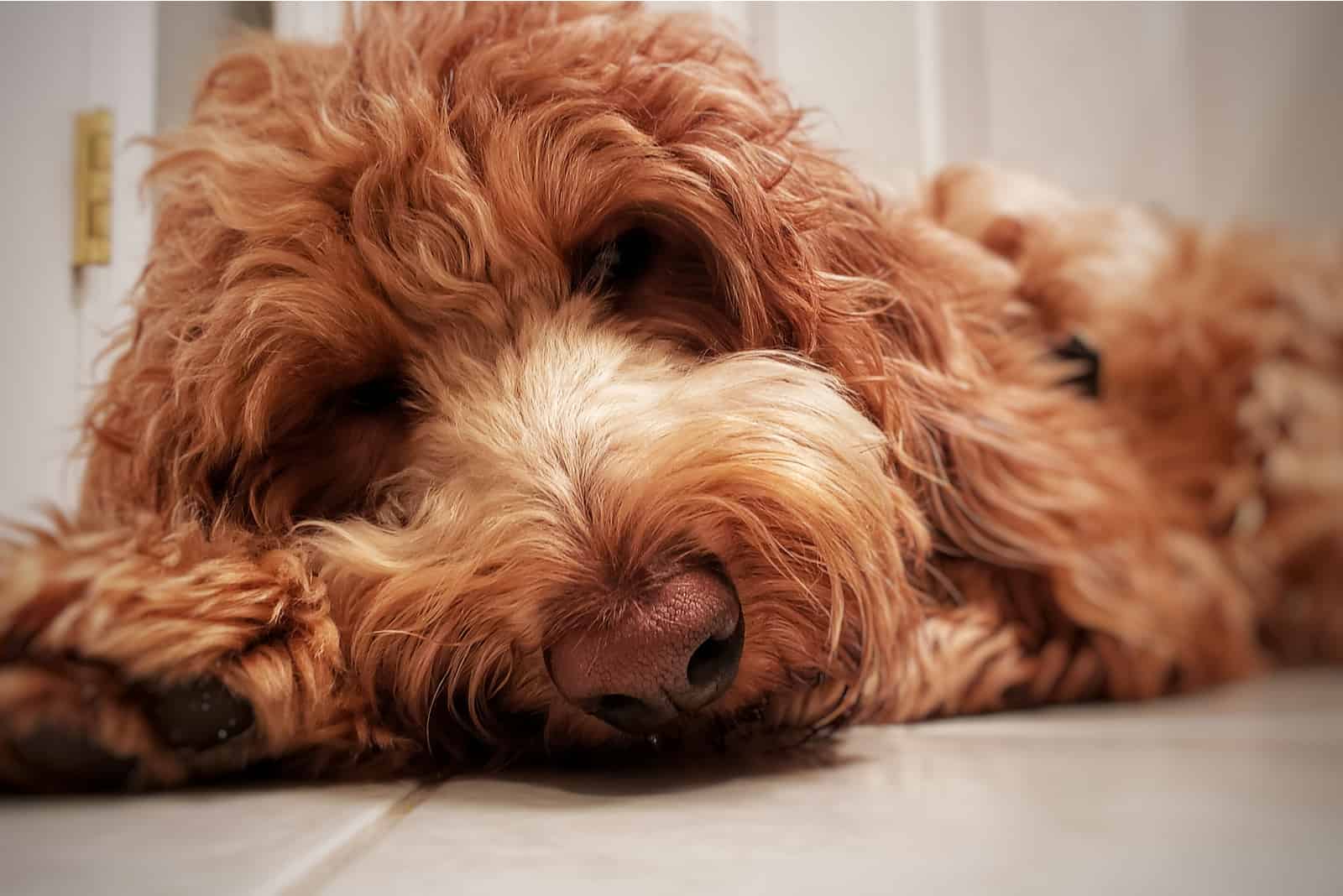
If you’re a first-time dog owner, a Goldendoodle may not be the ideal choice.
While they’re friendly and generally easy to train, their high energy, grooming needs, and behavioral quirks can be overwhelming for someone who doesn’t have experience with dog training or care.
They require consistent discipline, a structured routine, and lots of attention, which can be more than some first-time pet owners are prepared to handle.
12. Prone To Obesity
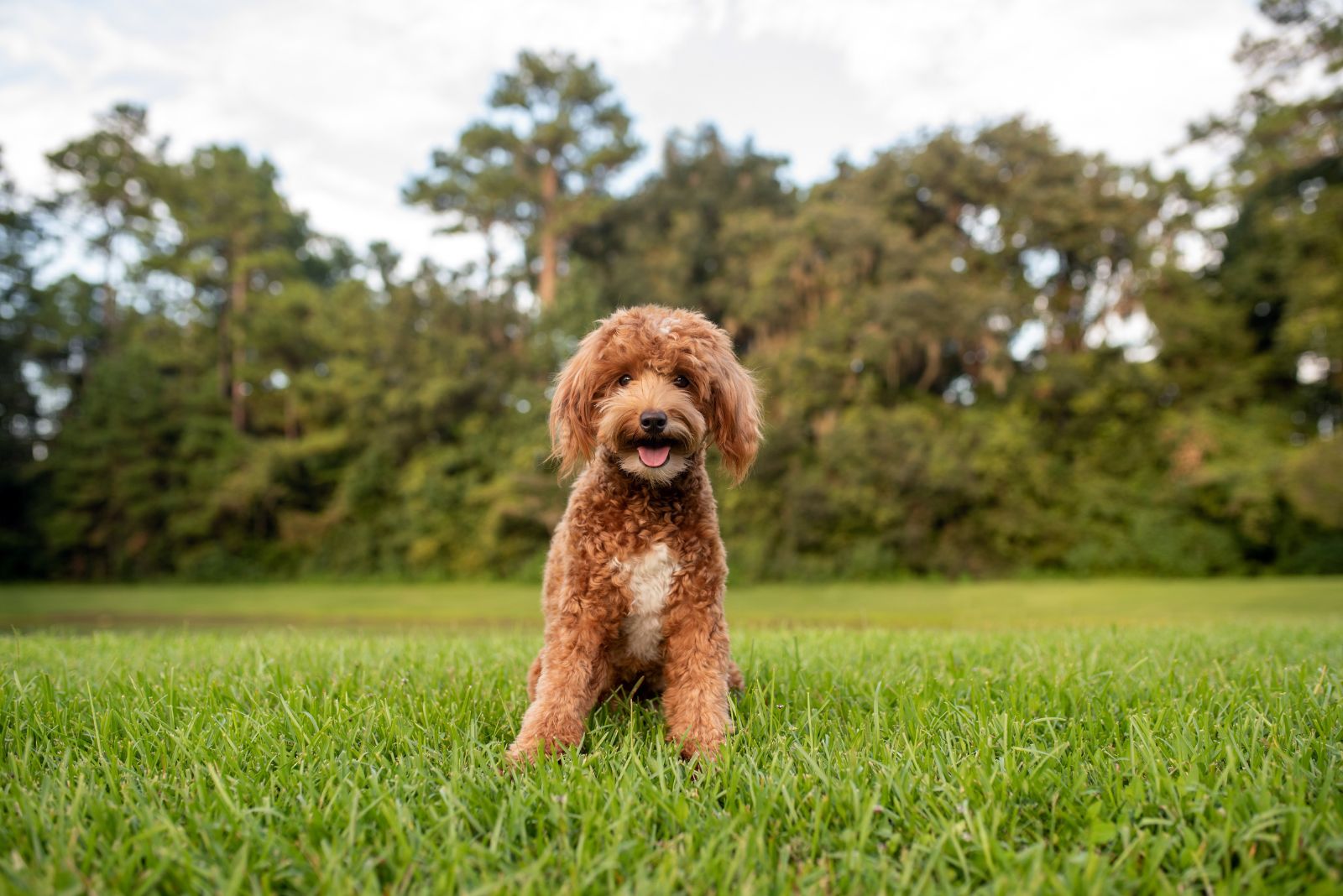
Goldendoodles love food. Unfortunately, their love for treats and snacks can sometimes lead to overeating and obesity if not carefully monitored.
Their high energy levels mean they need proper portions of food, but if they aren’t getting enough exercise or if you tend to spoil them with extra snacks, they can quickly put on weight.
Obesity can lead to joint problems, heart disease, and a shorter lifespan.
13. Require Constant Mental Stimulation

Goldendoodles are highly intelligent, but that means they require a lot of mental stimulation to keep them from getting bored. A bored Goldendoodle can become destructive or exhibit undesirable behaviors, like digging, chewing, or excessive barking.
Without enough engagement, they’ll quickly find ways to entertain themselves—none of which are likely to make you happy. If you’re not ready for this level of engagement, be prepared for a few “oops” moments around the house.
14. Inconsistent Temperament

Because Goldendoodles are a mixed breed, their temperament can vary widely depending on which parent they take after more.
Some may inherit the Golden Retriever’s friendly, calm demeanor, while others may exhibit more of the Poodle’s energetic and sometimes aloof tendencies.
This can make training and behavior management a challenge, as what works for one Goldendoodle might not work for another. It’s not uncommon for owners to be caught off guard by the sudden shifts in their dog’s personality, especially during adolescence.
15. Overly Friendly

Goldendoodles are famously friendly, but sometimes they take this friendliness to an extreme. While their affectionate nature is one of their charms, their tendency to approach strangers without hesitation can be a problem, especially for those who prefer a more reserved or protective dog.
They often greet anyone and everyone like an old friend, which can make them poor watchdogs or even a bit too social for some owners who would prefer their dog to be more discerning with new people.
Should I Get A Goldendoodle?
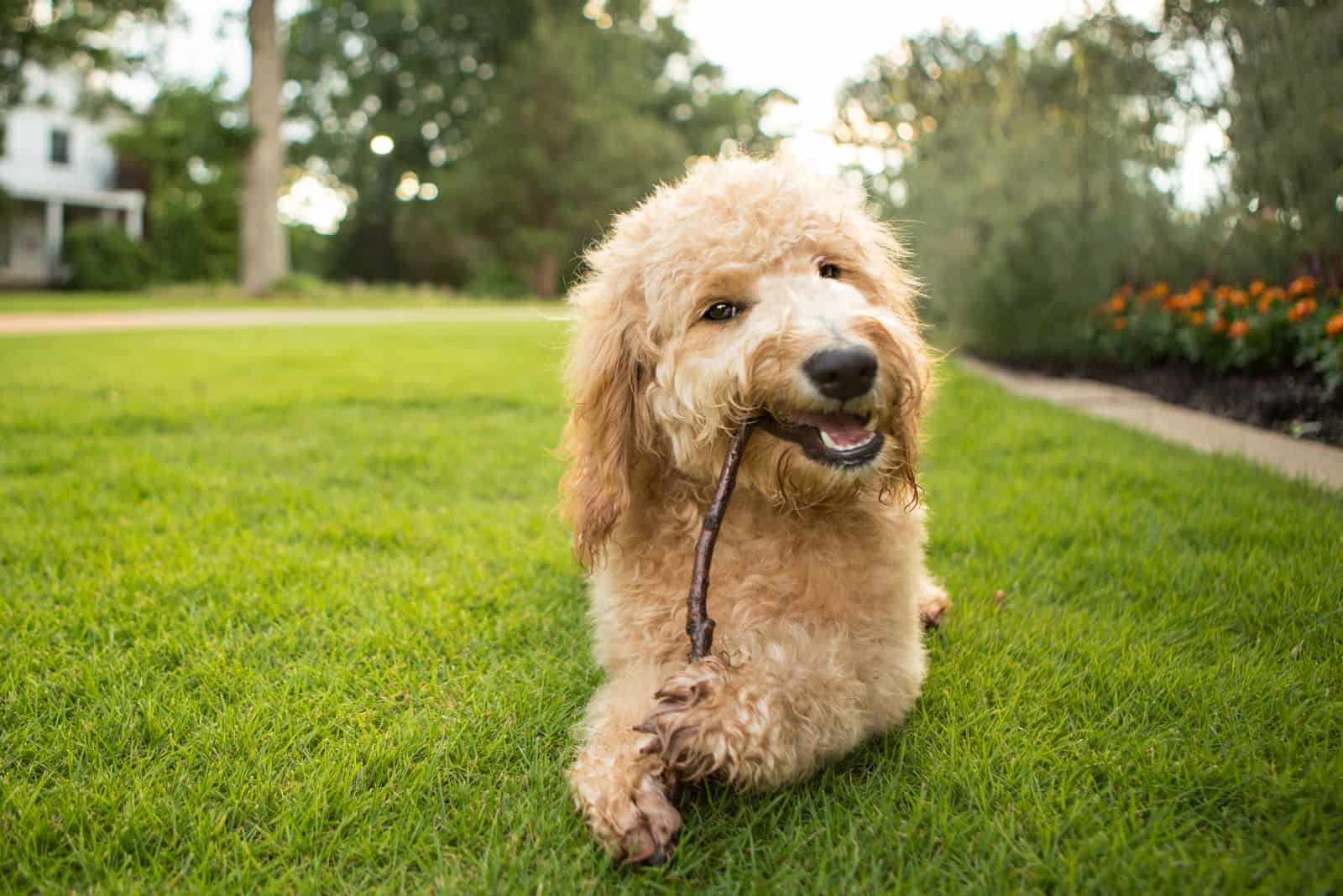
Goldendoodles can be great pets for the right family, but as with any breed, they come with their own set of challenges, especially for first-time owners.
They are a highly social and active breed that requires regular exercise and mental stimulation, as well as regular grooming to maintain their coat. They’re one of the breeds that might require occasional trips to the dog groomer.
They can also be prone to certain health issues, and it’s important to be informed and aware of them before getting a dog.
However, Goldendoodles are known for being friendly, intelligent, and affectionate dogs that make great companions. They are good with children and other pets, and they can be trained to do a variety of tasks, such as therapy work or service work.
They are also relatively low-shedding, which can be appealing to those who have allergies.
When considering getting a Goldendoodle, it’s important to consider your lifestyle and your ability to provide the dog with the exercise, training, grooming, and attention it needs.
It’s also important to be aware of the potential health problems and to purchase a puppy from a reputable breeder who health tests the parents.
Overall, if you are willing to put in the time and effort to provide a Goldendoodle with a loving and stimulating home, they can make great pets.
Conclusion

That marks the end of our list of nine reasons why Goldendoodles are the worst dog breed. As we’ve already said, this article is meant as a cautionary guide for all potential Goldendoodle owners, warning them of all the challenges they might face.
On the other hand, if you put in the time and effort to conquer all these challenges, you will be rewarded with a wonderful companion and a best friend that loves you unconditionally.
Related post: 16 Goldendoodle Breeders: Places To Buy Your New Dog
